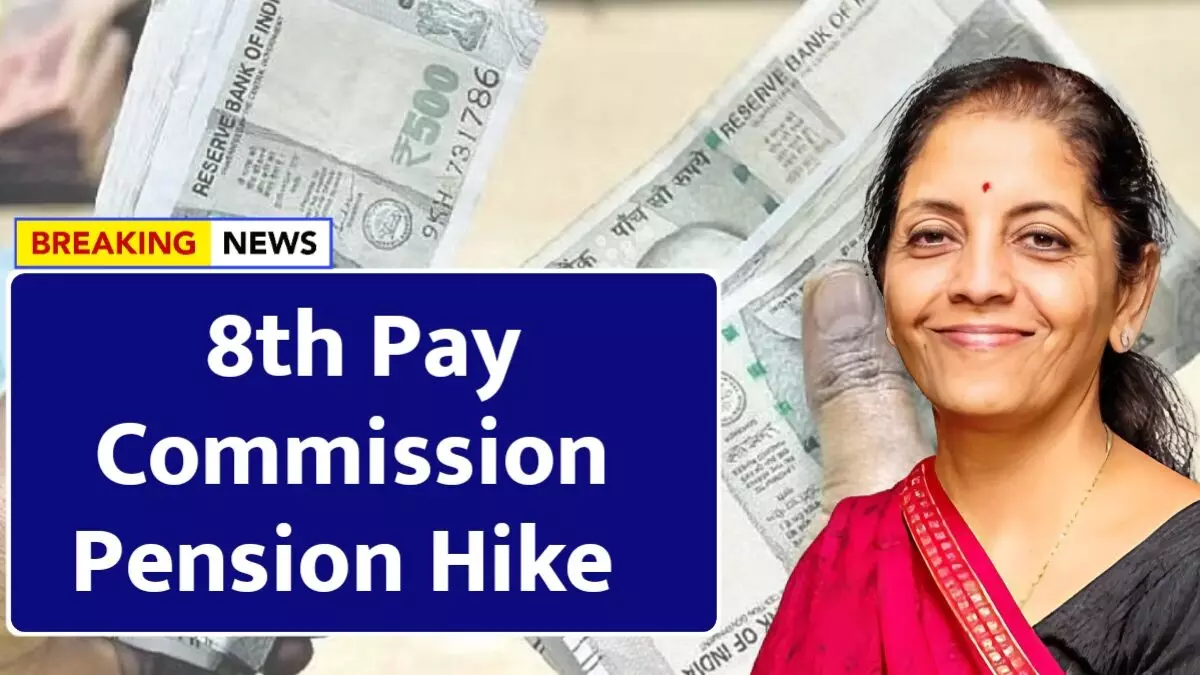8th Pay Commission Update: Cabinet Approves Terms of Reference; Panel to Submit Report Within 18 Months
The Modi government has approved the Terms of Reference for the 8th Pay Commission. The panel will recommend revised salaries, pensions, and allowances within 18 months. Here’s all you need to know.
8th Pay Commission Update: Cabinet Approves Terms of Reference; Panel to Submit Report Within 18 Months

In a major relief for the central government employees and pensioners, the Union Cabinet, chaired by PM Narendra Modi on 28 October, approved the Terms of Reference (ToR) of the 8th Central Pay Commission (CPC).
This will, in Letter and Spirit, set the process for possibly raising salaries and pensions for millions of government employees and retirees across the country.
8th Pay Commission: Key Update
The 8th CPC will now begin to look into and make recommendations for the revision of pay scales, allowances, and pensions of the central government employees and pensioners to reflect inflation and current economic conditions.
Union Minister Ashwini Vaishnaw had earlier declared in January 2025 that the Centre had given its approval to constitute the 8th Pay Commission. But work could not commence until the Cabinet gave its clearance to the ToR, which would define the scope, mandate, and timeline for recommending the pay structure.
8th Pay Commission: Terms of Reference
According to the Cabinet's sanction, the ToR stands as follows:
The Commission is appointed as an ad hoc body constituted of one Chairperson, one Part-Time Member, and one Member-Secretary.
It is required for submission of its recommendations within 18 months from the date of constitution.
Before arriving at a final recommendation, the Commission may consider tendering interim statements on certain fronts.
Factors the Commission Will Consider
While compiling its report, the 8th CPC will give weightage to the following factors:
The economic status of the country as a whole and the need for fiscal prudence.
Ensuring adequate resources are available for welfare schemes and developmental programs.
Determining the unfunded cost of non-contributory pension schemes.
Determining the financial impact on State Governments, which usually accept CPC recommendations with slight changes.
Comparison of emoluments, benefits, and working conditions with those offered in public sector undertakings and the private sector.
What Is a 8th Pay Commission?
The Central Pay Commission is constituted every ten years to examine and recommend changes in the pay structure, perks, retirement terms of central government employees.
The Eighth Pay Commission was announced in January 2025, with the likely date for the implementation of the recommendations being January 1, 2026.
Who Will Be Benefitted?
The 8th Pay Commission shall impact a population of over 10 million, including:
- About 5 million Central Government employees including defence personnel; and
- About 6.5 million Central Government pensioners, including defence pensioners.
Basic Salary Structure of Central Government Employees
According to a report by Ambit Institutional Equities, the average pay breakdown of a central government employee is as follows:
Basic Pay- 51.5%
Dearness Allowance (DA)- 30.9%
House Rent Allowance (HRA)- 15.4%
Transport Allowance- 2.2%
The next revision under the 8th Pay Commission is expected to see a huge rise in salary and pension payouts, bringing some relief with inflation and cost of living going uphill.
Expected Timeline
ToR Approved: October 28, 2025
Commission Report Due: Within 18 months (by mid-2027)
Likely Implementation: January 1, 2026 (for preliminary or interim recommendations)
Conclusion
The approval of the Terms of Reference for the 8th Pay Commission is the beginning of a very important era for the public sector workforce for India. With inflationary issues and fiscal crunch in the backdrop, the entire attention is now on what the Commission will do next -- and how its recommendations will alter the salary and pension structure for millions of central government employees and retirees in the times to come.

